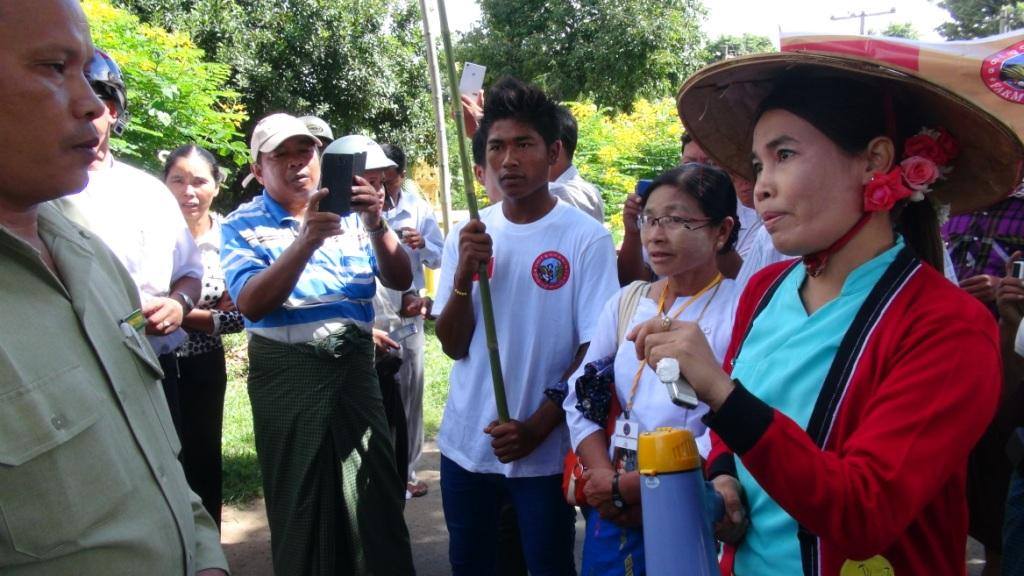Police authorities in Mandalay Division’s Pyin Oo Lwin have pressed charges against labour activist Su Su Nway for organising a massive protest over land grabs without first seeking official permission.
On Monday, more than 1,500 farmers from villages around Pyin Oo Lwin marched to local government offices, calling for the return of 300,000 acres of farmland allegedly confiscated from them by the government and private companies. Organised by the Farmers Union Organising Committee, the police initially informed Su Su Nway, a coordinator for the union, that she was violating Article 18 of the Peaceful Assembly and Peaceful Procession Law, which requires a rally organiser to seek permission from the authorities before holding a demonstration.
Markey, one of the leaders of civil society group 88 Generation Peace and Open Society – an organisation borne out of the 1988 student-led uprising against the then ruling military junta – told DVB on Wednesday that the police informed Su Su Nway the day after the protest that she had been charged.
“Signed by the superintendent of the Pyin Oo Lwin police, the letter informed Su Su Nway that she had been charged under Article 18 and summoned to the police station,” Markey said.
“Su Su Nway responded to the police that she will not be complying with these instructions and that they may feel free to come and officially detain her at any time,” he said.
As of Wednesday afternoon, she had not been arrested.
Originally from Rangoon Division, 43-year-old Su Su Nway has campaigned for labour rights for many years. A member of the National League for Democracy and a former political prisoner, she became the first person to successfully sue local government officials in 2005 under Burma’s 1999 Forced Labour Law. Sentenced to 12 and a half years for protesting and activism in 2007 and 2008, she suffered ill-health in prison, exacerbated by long periods in solitary confinement. She was released on a presidential amnesty in October 2011, but immediately returned to the fray as a relentless campaigner for farmers who have had their lands seized.
[related]
In a separate incident in Mandalay’s Madaya Township, a group of local farmers also faced charges for violating Article 18 of the Penal Code by organising a “plough protest”, an increasingly popular method of demonstrating by farmers who claim to have lost lands in seizures, mostly by the army during the time of military rule.
Rights groups have slammed the government’s policy of using Article 18 to arrest, detain and intimidate protestors who have staged demonstrations across the country over systemic government abuses such as land grabs.
Thein Than Oo, a coordinator for the Upper Burma Lawyers Network – which focuses on assisting individuals prosecuted under Article 18 – said the law contradicts Burma’s Constitution.
“We believe that Article 18 of the Peaceful Assembly and Peaceful Procession Law is contradictory to the Constitution’s Article 354, which guarantees freedom of expression,” Thein Than Oo said. “The single purpose it serves is to oppress activists.”
Burma’s Union Parliament on Wednesday passed a bill proposing amendments to Article 18. Protestors will still require written permission, but local authorities and police will not be allowed to reject a request to stage a rally without providing “valid reasons”. Penalties for violating this article have also been halved, according to the bill, which currently awaits an endorsement from the president before it can be adopted into law.



